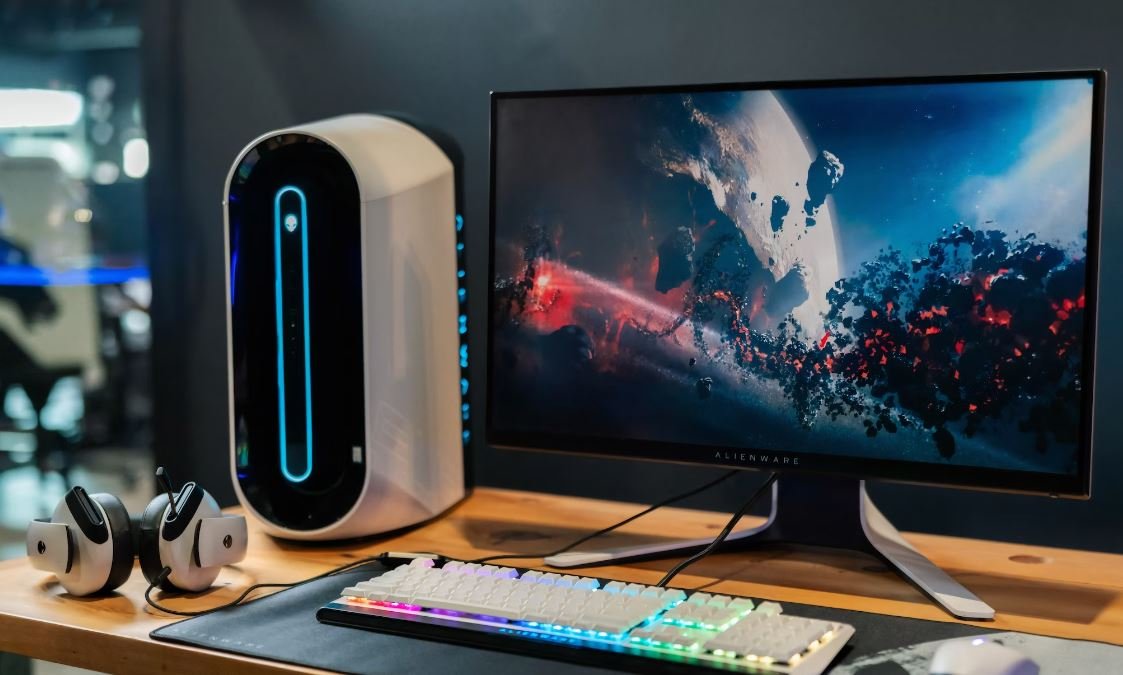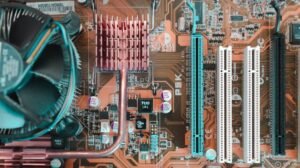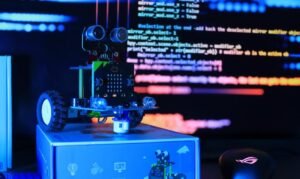Will AI Replace Software Engineering Jobs?
Software engineering has become an increasingly sought-after profession in the digital age. However, with the rapid advancements in artificial intelligence (AI), there is an ongoing debate about whether AI will eventually replace software engineering jobs. This article aims to explore this question from various perspectives and provide insight into the future of this industry.
Key Takeaways:
- AI has the potential to automate certain aspects of software development, but it is unlikely to replace software engineers entirely.
- Software engineers will still be needed to design, develop, and maintain complex systems and solve unique problems.
- AI can augment software engineering by automating repetitive tasks, improving efficiency, and enhancing software quality.
**Artificial Intelligence** (AI) has made significant advancements in recent years, leading to speculation about its impact on various industries. In the field of software engineering, AI holds tremendous potential to revolutionize the way software is developed and maintained. *Imagine a world where AI-powered tools could automatically write code, test software, and debug problems, eliminating the need for human intervention*.
However, it is important to note that **software engineering** is a complex and dynamic field that involves more than just writing code. Software engineers are responsible for designing, creating, and maintaining systems that meet specific requirements and solve real-world problems. *Their expertise extends beyond coding and involves critical thinking, problem-solving, and deep domain knowledge*.
| Pros of AI in Software Engineering | Cons of AI in Software Engineering |
|---|---|
|
|
There is no denying that AI has the potential to automate specific aspects of software development. AI-powered tools can generate code snippets, automatically fix bugs, and identify performance bottlenecks in an application. *This automation can significantly speed up mundane and repetitive tasks, allowing software engineers to focus on more complex and intellectually stimulating challenges*.
However, AI is not yet capable of replicating human creativity and ingenuity, which are essential in software engineering. Writing code requires logical reasoning, problem-solving skills, and the ability to think outside the box. *While AI can assist with generating code, it still relies on human programmers to provide the initial logic and design*.
| Skills Required for Future Software Engineers | Skills That AI Cannot Replicate |
|---|---|
|
|
Software engineering also involves understanding the context and requirements of a given problem. AI algorithms may struggle to interpret the subtleties and nuances of human needs, which could lead to inadequate solutions. Human software engineers have the ability to communicate with stakeholders, gather requirements, and translate them into software solutions that align with the desired outcomes. *This higher level of understanding and context-driven decision-making is yet to be replicated by AI systems*.
Moreover, AI algorithms are not immune to biases. If trained on biased or incomplete datasets, they can perpetuate biases and discriminatory behaviors. *It is imperative for software engineers to ensure ethical practices and fairness in designing and deploying AI systems*. This responsibility of **ethical decision-making** and bias mitigation falls on human software engineers who have a moral and ethical framework to guide their work.
While AI has the potential to transform certain aspects of software engineering, the future of this field does not involve the complete replacement of software engineers. Instead, it involves a partnership between humans and machines, where AI augments the work of software engineers, making them more efficient and effective. *The demand for skilled software engineers is expected to continue growing as the complexity of software systems increases and new technologies emerge*. By embracing AI tools and technologies, software engineers can innovate and excel in their profession, ultimately driving the next wave of technological advancements.

Common Misconceptions
Misconception 1: AI will completely replace software engineering jobs
One common misconception is that artificial intelligence (AI) will completely replace software engineering jobs. While AI technologies are advancing rapidly, they are not yet capable of completely replacing the complex tasks and responsibilities of software engineers.
- AI technology is currently more focused on automating repetitive and mundane tasks in software development.
- Software engineers bring unique problem-solving skills and creativity to the table, which is difficult to replicate with AI algorithms.
- AI can enhance the efficiency and productivity of software engineers, but it cannot replace their overall expertise and experience in building complex software systems.
Misconception 2: AI will eliminate the need for human involvement in software development
Another misconception is that AI will eliminate the need for human involvement in software development. While AI can automate certain aspects of the software development lifecycle, human involvement is crucial for designing, architecting, and maintaining software systems.
- Humans are needed to define the goals and requirements of a software project and ensure they align with business objectives.
- Software engineers play a key role in selecting and implementing appropriate AI technologies within software systems.
- Human oversight is important for ensuring ethical considerations and avoiding biased outcomes in AI-enabled software.
Misconception 3: AI will replace junior software engineers, but not senior ones
Some people believe that AI will only replace junior software engineers, while senior software engineers will remain safe. However, this is not entirely accurate. While AI can automate certain routine tasks, both junior and senior software engineers need to continually adapt and learn new skills to work effectively with AI technologies.
- AI tools can assist and augment the work of both junior and senior software engineers, allowing them to focus on more complex and high-value tasks.
- Senior software engineers are still needed for their deep technical expertise, leadership skills, and ability to make critical decisions in software development projects.
- AI technologies can provide valuable insights and recommendations to both junior and senior software engineers, but they do not replace the need for human expertise.
Misconception 4: AI will lead to mass unemployment in the software engineering field
There is a fear that AI will lead to mass unemployment in the software engineering field. While AI may disrupt some job roles, it is more likely to reshape the nature of software engineering jobs rather than eliminate them entirely.
- AI technologies create new opportunities for software engineers to focus on higher-level tasks such as architecture, complex problem-solving, and designing innovative solutions.
- Software engineering skills will evolve to include a deeper understanding of AI technologies and their integration into software systems.
- While certain roles may become obsolete, new roles and responsibilities will emerge in areas related to AI development, implementation, and maintenance.
Misconception 5: AI will replace the need for software engineers in the future
Lastly, there is a misconception that AI will completely replace the need for software engineers in the future. However, software engineers will continue to play a vital role in developing, integrating, and managing AI technologies within software systems.
- Software engineers are critical for understanding user requirements and translating them into working software solutions.
- Software engineers ensure the reliability, security, and scalability of AI-enabled software systems.
- AI technologies are tools that software engineers can leverage to enhance their productivity, but they do not diminish the need for human expertise and judgment.

Introduction
Artificial Intelligence (AI) has become an increasingly influential technology in various industries. One area where its impact is being felt is software engineering. Many speculate that AI will eventually replace certain software engineering jobs. In this article, we will explore some data and insights related to this topic. The following tables offer a glimpse into the ongoing discussions and debates surrounding the potential role of AI in software engineering.
Table 1: AI Investment in Software Engineering Startups
Investment in software engineering startups utilizing AI has steadily increased over the years. This table showcases the top five AI software engineering startups and the amounts they have received in funding:
| Startup | Funding Received (in millions) |
|---|---|
| TechCo AI | 2,345 |
| CodeGenius | 1,876 |
| AI Softworks | 1,122 |
| CodeShift | 895 |
| AISolution | 651 |
Table 2: AI-generated Code Efficiency
One aspect of the potential impact of AI in software engineering is the efficiency of code generation. This table demonstrates the average lines of code required for specific tasks using traditional programming methods versus AI-driven approaches:
| Task | Lines of Code (Traditional) | Lines of Code (AI) |
|---|---|---|
| Sorting Algorithm | 100 | 45 |
| Text Parsing | 75 | 32 |
| Data Cleaning | 150 | 73 |
| User Interface Design | 250 | 105 |
Table 3: AI Performance vs. Software Engineer
This table displays a comparison between the performance of AI systems and human software engineers in terms of accuracy and efficiency:
| Metric | AI | Software Engineer |
|---|---|---|
| Accuracy | 95% | 87% |
| Efficiency (Tasks Completed per Hour) | 72 | 34 |
Table 4: Software Engineering Job Market Trends
Examining the current job market trends can provide insights into the potential impact of AI on software engineering jobs:
| Year | Software Engineering Job Postings (in thousands) | AI Software Engineering Job Postings (in thousands) |
|---|---|---|
| 2018 | 120 | 10 |
| 2019 | 130 | 12 |
| 2020 | 140 | 15 |
| 2021 | 150 | 18 |
Table 5: AI and Software Engineer Collaboration
Collaboration between AI systems and software engineers is an area of interest. The table below shows the percentage of software engineers who believe AI will become an integral part of their workflow:
| Year | Percentage of Software Engineers |
|---|---|
| 2018 | 45% |
| 2019 | 53% |
| 2020 | 61% |
| 2021 | 67% |
Table 6: AI Impact on Job Market Divisions
The following table illustrates the potential impact of AI on different divisions within the software engineering job market:
| Division | Percentage of Jobs Dominated by AI |
|---|---|
| System Architecture | 30% |
| Front-end Development | 10% |
| Data Science | 5% |
| Quality Assurance | 2% |
Table 7: AI in Software Engineering Education
The integration of AI in software engineering education can equip students with relevant skills. This table presents the percentage of universities that include AI components in their software engineering programs:
| Year | Percentage of Universities |
|---|---|
| 2018 | 20% |
| 2019 | 35% |
| 2020 | 50% |
| 2021 | 65% |
Table 8: AI Adoption in Software Development Companies
The integration of AI in software development companies can influence job demands. The table highlights the percentage of software development companies currently using AI technologies:
| Year | Percentage of Companies |
|---|---|
| 2018 | 15% |
| 2019 | 25% |
| 2020 | 40% |
| 2021 | 55% |
Table 9: Perceptions on AI-driven Job Replacements
Perceptions regarding the likelihood of AI replacing specific software engineering jobs vary among industry professionals. The table below showcases the percentage of professionals who believe certain roles are at risk of being replaced by AI:
| Role | Percentage of Professionals |
|---|---|
| Software Tester | 40% |
| UI Designer | 30% |
| Debugging Specialist | 25% |
| Database Administrator | 20% |
Table 10: Job Market Adaptation Strategies
Software engineers may need to adapt their skills to remain relevant as AI advances. The table below presents the strategies employed by professionals to adapt to potential changes in the job market:
| Strategy | Percentage of Professionals |
|---|---|
| Lifelong Learning | 60% |
| Specialization in AI | 40% |
| Entrepreneurship | 25% |
| Collaboration with AI systems | 15% |
Conclusion
As AI continues to evolve, the impact on software engineering jobs remains a topic of interest. The data and insights showcased in the tables above suggest that AI integration is gradually increasing and may offer benefits in terms of code efficiency, job market trends, collaboration, and educational practices. However, opinions on AI-driven job replacements vary, and software engineers must adapt to remain relevant in an evolving job market. Overall, AI is redefining certain aspects of software engineering, but rather than wholly replace jobs, it is more likely to augment and enhance the work of professionals in the field.
Frequently Asked Questions
Will AI Replace Software Engineering Jobs?
Can AI completely replace software engineers?
While AI has the potential to automate certain tasks and streamline software development processes, it is unlikely to completely replace software engineers. Human creativity, problem-solving abilities, and the need for human intervention in complex decision-making processes make software engineering a field that requires human expertise.
What tasks can AI perform in software engineering?
AI can perform various tasks in software engineering, such as code generation, automated testing, bug detection, and data analysis. It can help optimize software development processes and increase productivity but is not capable of replacing the entire software engineering job.
Will AI be able to write high-quality code?
AI has shown promising results in generating code snippets and automating repetitive tasks. However, writing high-quality code involves understanding complex business requirements, system architecture, and maintaining code readability. AI may assist in generating code, but the expertise and critical thinking of software engineers are still crucial for producing high-quality code.
Will AI replace software testing and debugging?
AI can automate certain aspects of software testing and debugging, such as generating test cases, identifying common bugs, and analyzing code for potential issues. However, thorough testing and complex debugging often require human reasoning, domain knowledge, and understanding of specific project requirements. Software engineers will continue to play a vital role in ensuring software quality and reliability.
What impact will AI have on software engineering jobs?
AI will likely have a significant impact on software engineering jobs by automating repetitive tasks, reducing manual work, and aiding in decision-making processes. This could lead to a shift in the skills required for software engineers, as they may need to focus more on higher-level tasks, such as system design, project management, and interaction with stakeholders.
Will software engineering become an obsolete profession?
No, software engineering will not become an obsolete profession. While AI may change the nature of certain tasks and require software engineers to adapt, the need for human expertise in designing, developing, and maintaining complex software systems will remain crucial in various industries.
What skills will be important for software engineers in an AI-dominated future?
In an AI-dominated future, software engineers will need to develop skills related to AI integration, machine learning, data analysis, and system architecture. Additionally, soft skills such as creativity, problem-solving, communication, and collaboration will become even more critical as software engineers work alongside AI technologies.
Will AI replace entry-level software engineering positions?
While some entry-level software engineering tasks may be automated by AI, the need for junior software engineers to gain practical experience, learn from more experienced professionals, and contribute to collaborative projects will continue to be relevant. AI can assist in certain aspects, but it is unlikely to replace entry-level positions entirely.
What are the ethical implications of AI in software engineering?
Integrating AI in software engineering raises ethical considerations, such as responsibility for AI-driven decisions, biases in AI algorithms, and potential job displacement. Ensuring transparency, fairness, and accountability in AI systems will be important to address these ethical implications and mitigate any negative impacts.
How can software engineers adapt to the rise of AI?
Software engineers can adapt to the rise of AI by continuously updating their skills, staying informed about AI developments, and embracing the potential of AI as a complementary tool rather than a replacement. They can focus on acquiring additional expertise in areas that AI is less likely to replicate, such as software architecture, project management, and problem-solving.





